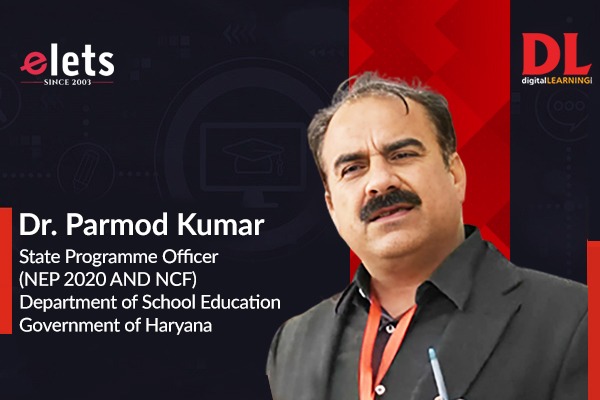
The rapid evolution of technology has positioned Artificial Intelligence (AI) and Machine Learning (ML) as transformative forces across various sectors, including education. As India progresses with its Digital India initiatives, the New Curriculum Framework (NCF) for School Education 2023, aligned with the National Education Policy (NEP) 2020, emphasizes integrating advanced technologies into the education system. However, while countries worldwide are embracing these changes, India faces unique challenges in readiness, infrastructure, and implementation.
The Future of Jobs 2025: Insights and Transformations
The Future of Jobs Report 2025, released by the World Economic Forum, provides a comprehensive analysis of the rapidly evolving global labor market. Based on insights from over 1,000 employers representing 14 million workers across 22 industries and 55 economies, the report examines macrotrends influencing the workplace, changes in job roles, and strategies for workforce transformation.
The Global Labor Market Landscape in 2025
In 2025, the labor market will be shaped by technological advancements, economic uncertainties, demographic shifts, and environmental imperatives. These forces drive transformations in employment, creating both opportunities for job growth and challenges of displacement. Despite global unemployment rates reaching historic lows, disparities persist across regions and demographics. The report provides a roadmap for navigating this dynamic landscape.
Drivers of Labor-Market Transformation
Technological advancements stand as the most significant driver of labor-market transformation. Technologies like AI, robotics, and generative AI are reshaping industries, with investments in AI creating demand for roles such as AI Specialists and Data Analysts. The green transition, characterized by efforts to reduce carbon emissions and adapt to climate change, is also fostering growth in renewable energy roles like Environmental Engineers. Additionally, demographic shifts in high-income countries are increasing the demand for healthcare roles, while growing working-age populations in low-income regions emphasize the importance of education and job creation. Economic uncertainties and geopolitical fragmentation further highlight the need for resilience and innovation in workforce strategies.
AI and ML in Education: Transforming Learning
AI and ML technologies are reshaping education by creating personalized, adaptive, and efficient learning environments. These technologies enable personalized learning by adapting to individual students’ needs, providing tailored resources, feedback, and recommendations that foster better engagement and outcomes. Automated assessments powered by AI evaluate not only rote learning but also critical thinking, creativity, and problem-solving, offering consistent, unbiased evaluations and saving educators’ time.
Technologies like Augmented Reality (AR) and Virtual Reality (VR) create immersive experiences, making abstract concepts tangible and engaging. For instance, students can explore the solar system or conduct virtual lab experiments in their classrooms. AI-driven analytics also provide educators with insights into student performance, enabling timely interventions and targeted support to address learning gaps.
Why India Needs AI and ML in Education
The integration of AI and ML in education is essential for future readiness. The employment landscape is rapidly evolving, driven by advancements in AI, ML, AR, and VR. Traditional jobs are transforming, and new roles are emerging, requiring skills that align with technological innovations. India’s curriculum needs to shift from rote learning to fostering computational thinking, creativity, and problem-solving. AI and ML must become core components of the curriculum to prepare students for the future.
The NEP 2020 and NCF 2023 emphasize a multidisciplinary, technology-integrated approach to education. Including AI and ML aligns with their focus on STEM (Science, Technology, Engineering, and Mathematics) and ICT (Information and Communication Technology). Skill development in these areas enhances employability and innovation, preparing students for interdisciplinary applications in fields like agriculture, healthcare, and smart cities. The NEP’s focus on joyful and bagless days can be complemented with technology-driven simulations, gamified learning, and practical skill development.
Challenges in Implementing AI and ML in Indian Education
India faces several challenges in adopting AI and ML in education. Awareness and acceptance among stakeholders, including educators and parents, remain low. Bridging the digital divide is crucial to ensuring that AI-driven education benefits all students, regardless of their socioeconomic background. Infrastructure gaps, such as unreliable internet connectivity and limited access to smart classrooms, further hinder adoption. Ethical and regulatory concerns, including data privacy and algorithmic bias, must be addressed through clear policies.
Opportunities for Growth
Despite these challenges, the opportunities are immense. Integrating AI and ML into education equips students with future-ready skills, aligning with global job market demands. AI fosters experiential and project-based learning, making education more engaging and relevant. Collaboration with EdTech firms can provide cutting-edge tools and training, enhancing the quality of education.
Strategies and Solutions for the Future
Curriculum Development
For successful implementation, curriculum development and resource preparation are crucial. NCERT, SCERTs, and education boards must introduce fundamental AI concepts, such as machine learning, algorithms, and ethical AI use. Textbooks should include real-world examples of AI applications in agriculture, healthcare, and smart cities.
Digital textbooks should incorporate AR and VR tools for experiential learning, enabling students to visualize and interact with complex ideas. Evaluation systems must evolve, with AI-enabled adaptive testing systems replacing traditional exams to focus on critical thinking and higher-order cognitive skills.
Teacher Training
The successful integration of AI and ML depends on teacher readiness. Teacher education programs like B.Ed curricula must include AI, ML, and AR/VR training modules. Regular workshops, certification programs, and hands-on training sessions should be conducted for in-service teachers. Appointing AI-trained faculty and officers can ensure consistent and effective use of AI and ML in classrooms.
Infrastructure Development
Infrastructure readiness is a significant bottleneck in India’s adoption of AI and ML in education. Schools need reliable internet connectivity, smart classrooms, and AI-compatible devices. Policy support is essential to establish guidelines for ethical AI use, data privacy, and cybersecurity. Collaboration with industry stakeholders can provide access to cutting-edge tools and resources.
Challenges and Opportunities
While the integration of AI and ML in education offers immense potential, it also raises critical challenges. Many educators and parents lack awareness of AI’s potential, creating resistance to adoption. Bridging the digital divide is essential to ensure equitable access to AI-driven education across socioeconomic groups. Ethical concerns, such as data privacy and algorithmic bias, must be addressed to build trust and ensure responsible AI use. Clear regulatory measures and guidelines are needed to govern the integration of AI in education.
Also Read: Investing in Potential India’s Education Priority
Conclusion
The integration of AI and ML into India’s school education system represents a paradigm shift that aligns with the vision of NEP 2020 and NCF 2023. These technologies promise to revolutionize teaching, learning, and evaluation, preparing students for the future workforce. However, achieving this vision requires collaboration among policymakers, educators, industry leaders, and parents. By addressing challenges and leveraging opportunities, India can create a future-ready education system that equips students with the skills and knowledge needed to thrive in a rapidly changing world.
Views expressed by Dr. Parmod Kumar, State Programme Officer (NEP 2020 AND NCF) – Department of School Education, Government of Haryana






















